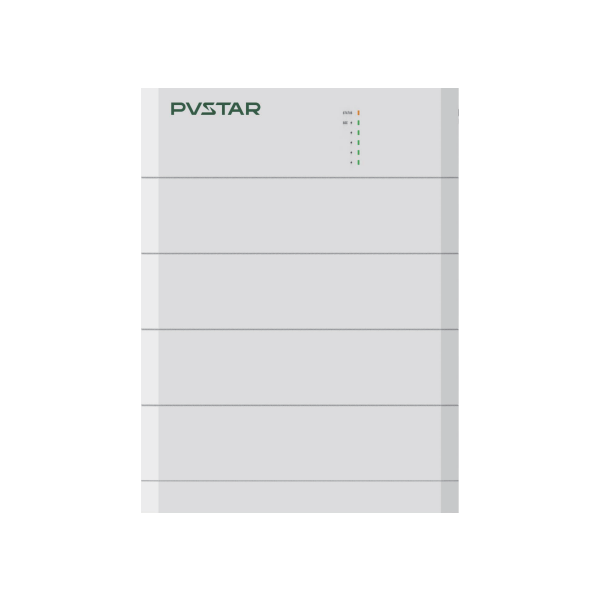China's Cost of Solar Battery for House Solutions
Product Main Parameters
| Model | Capacity | Usable Capacity | Voltage | Weight | Dimensions (W/D/H) |
|---|---|---|---|---|---|
| PVS-HB 075A | 7.68kWh | 6.91kWh | 153.6V | 35.0kg | 540*390*600mm |
| PVS-HB 200A | 20.48kWh | 18.43kWh | 409.6V | 35.0kg | 540*390*1250mm |
Common Product Specifications
| Installation Location | Operating Temp. | Certification | Life Cycles |
|---|---|---|---|
| Indoor/Outdoor | -20℃~50℃ | IEC 62619 | 6000 Cycles |
Product Manufacturing Process
Lithium iron phosphate (LiFePO4) batteries, used in Chint PVSTAR products, undergo a meticulous manufacturing process that ensures safety, efficiency, and longevity. According to authoritative sources, the process begins with the preparation of electrode materials, followed by the assembly of battery cells in a controlled environment to prevent contamination. Each cell undergoes rigorous quality checks, including chemical stability and mechanical integrity tests, to meet industry standards. The batteries are then assembled into modules, enhancing scalability and ease of integration. The complete system is tested for electrical performance under various conditions to ensure reliability. Studies confirm that LiFePO4 batteries offer increased safety due to their stable chemistry and ability to withstand thermal runaway. In conclusion, Chint PVSTAR leverages advanced manufacturing techniques to produce batteries that are both high-performing and cost-effective for China's cost-sensitive market, as supported by recent research.
Product Application Scenarios
Chint PVSTAR's solar battery systems are highly versatile, making them ideal for various applications, including residential self-consumption, commercial energy management, and emergency backup power. According to authoritative studies, incorporating battery storage in residential settings can significantly reduce energy costs by optimizing the use of solar power during peak demand periods. Additionally, businesses utilizing these systems benefit from load management strategies like peak shaving and demand response, which are critical in regions with variable electricity pricing. Emerging research also highlights the importance of battery storage in enhancing grid reliability and supporting renewable energy integration, particularly in China's rapidly expanding solar market. In conclusion, Chint PVSTAR's battery solutions are designed to meet the dynamic needs of various users, ensuring improved energy independence and cost savings, in line with the latest industry findings.
Product After-Sales Service
- 24/7 customer support for immediate assistance
- Comprehensive warranty for product parts and labor
- Regular maintenance checks included
- Remote monitoring via PVSTAR app to ensure optimal performance
- Flexible service plans tailored to customer needs
Product Transportation
- Secure packaging to prevent damage during transit
- Shipment tracking available through the PVSTAR portal
- Partnerships with reputable logistics providers
- Customs clearance support for international orders
- Eco-friendly transportation options available
Product Advantages
- Easy installation with modular design
- High reliability with IP65 protection
- User-friendly online monitoring
- Expandable capacity up to 81.92kWh
- Cost-effective energy savings
Product FAQ
- What is the cost of solar battery for house systems in China? The cost of solar battery for house systems in China varies based on capacity, technology, and installation. Typically, it ranges from $5,000 to $15,000.
- How do I determine the right capacity for my needs? It depends on your energy consumption and usage patterns. Our experts can help assess your requirements through an energy audit.
- Can the solar battery system be used off-grid? Yes, our systems are designed to support both grid-tied and off-grid applications, providing flexibility for various scenarios.
- What is the lifespan of a Chint PVSTAR solar battery? Our LiFePO4 batteries typically last for over 6,000 cycles, equivalent to 15-20 years of usage, with proper maintenance.
- Are there incentives available for solar battery systems in China? Yes, various regional incentives and rebates can reduce the overall cost of solar battery systems significantly.
- How does the PVSTAR app enhance user experience? The PVSTAR app provides real-time monitoring, allowing users to track energy production, consumption, and system health remotely.
- Is professional installation necessary? Professional installation is highly recommended to ensure safety and optimal performance of the solar battery systems.
- How reliable are Chint PVSTAR solar battery systems during outages? Our systems provide robust backup power, ensuring uninterrupted energy supply during outages and extreme weather conditions.
- What maintenance is required for solar battery systems? Routine checks and occasional software updates are recommended to maintain efficiency and prolong the system's life.
- Can the system be expanded in the future? Yes, our solar battery systems are modular and easily expandable to accommodate increasing energy needs.
Product Hot Topics
Cost of Solar Battery for House Systems in China: Trends and Predictions
The cost of solar battery for house systems in China is gradually decreasing due to advancements in technology and increased production scale. Recent studies indicate that the market is expected to see a further reduction in prices as more manufacturers enter the field and competition intensifies. However, the investment remains substantial, and households should consider long-term savings and energy independence when making purchasing decisions. China's commitment to renewable energy and carbon neutrality goals further supports the growth and adoption of solar battery systems, providing a promising outlook for future cost reductions.
Understanding the Impact of Solar Battery Systems on Household Energy Costs
Integrating a solar battery system in a residential setup can significantly lower energy costs for homeowners. By storing excess solar energy generated during the day, these systems allow for greater self-consumption and reduced dependence on the grid. This is particularly beneficial in regions with time-of-use electricity rates, as it enables homeowners to utilize stored energy during peak pricing periods. In China, the government's push for renewable energy adoption, combined with financial incentives, makes solar battery systems an attractive investment with promising returns.
Image Description
There is no picture description for this product









